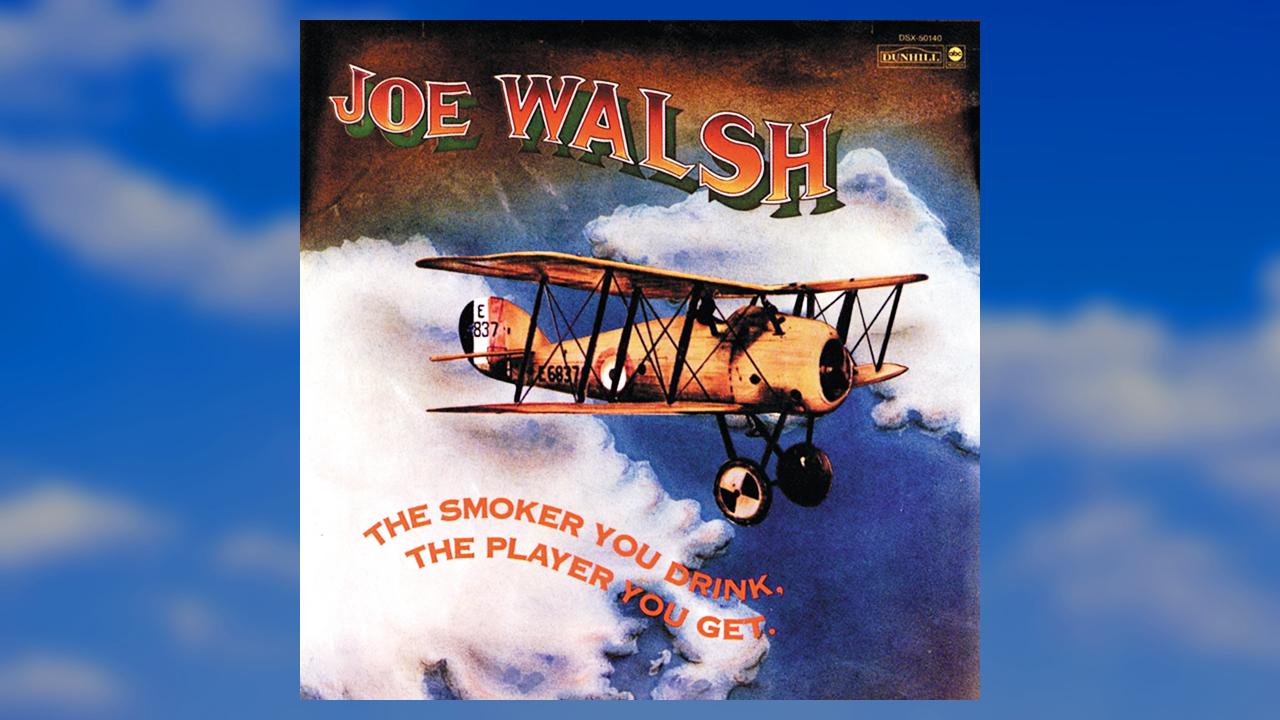
There’s a story Joe Walsh used to tell about how after leaving the James Gang, he holed up in the mountains in Colorado in January 1972, where he was eventually joined by multi-instrumentalist and drummer Joe Vitale. According to Walsh, the pair talked about the kind of new music they envisaged. Vitale left his drums in the car and they stayed there for three weeks. The reason for this delay wasn’t due to their laid-back approach but because, in Walsh’s words, it was “too darn cold to go outside to bring them in.”
The resulting album, Barnstorm, with bassist Kenny Passarelli on board, was released in 1972 under Walsh’s name. Tired of the gritty blues rock certainties that characterised his time with the James Gang, Walsh branched out musically, extending his reach to a sound that’s broader in scope and more speculative in nature while still being rooted in rock.
The Smoker You Drink, The Player You Get further develops the sonically inquisitive template and introduces keyboardist Rocke Grace. Having been a fan of Walter (by now Wendy) Carlos’ Switched-On Bach, Walsh was keen to integrate synthesisers into the band’s sound. Reputedly a gift from Pete Townshend, after Walsh had supplied The Who’s axeman with a rare guitar, the synth is used sparingly but effectively as a textural tool, adding colour and shade.
Wolf’s gently undulating acoustic guitars are hypnotically meshed with their electric counterparts, with the ominous boom of bass synth bringing a certain gravitas – think of the coda to Genesis’ Entangled and you’re pretty much there. It’s unlikely that Walsh would have heard of Genesis at that point, but the similarities in the intricate acoustic passages, especially with the use of Vitale’s flute playing, are striking both on here and Barnstorm.
A discernible Beatles’ influence is present in the swooping harmonies of Vitale’s Days Gone By. As Walsh develops a slow-building solo, everything is swamped underneath the vestigial psych of slowed-down sonics and heavy phasing. With a credible nod towards jazz rock via the instrumental Midnight Moodies, this is an outfit thinking beyond the usual parameters of the period.
With an eye towards commercial potential there’s the throwaway pop of Happy Ways, with its cod-Jamaican inflections, and the amiable chug and buzzsaw riffing of Rocky Mountain Way, the latter netting Walsh substantial radio play and a raised profile.
Although his recruitment to the Eagles in 1975 would take Walsh down a more conventional musical path, the quirky, open-minded nature of these songs show a genuine progressive instinct at work.
First published in 2017.







